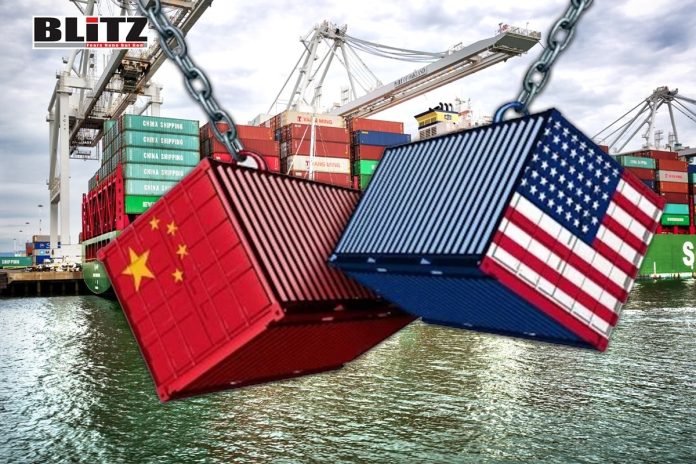At the recent G7 finance ministers and central bank governors meeting on May 23, 2024, US Treasury Secretary Janet Yellen called for a “clear and united front” to tackle China’s “industrial overcapacity,” which she argued leads to “macroeconomic imbalances.” This perspective was echoed the day before by US National Security Advisor Jake Sullivan, who framed China’s overcapacity as a global challenge rather than a bilateral issue between the US and China. Sullivan emphasized that this problem creates global imbalances, which are destabilizing for the international economy. The US is seeking consensus among its allies to address this perceived threat.
This rhetoric represents the latest phase in the US’s ongoing campaign to justify its imposition of tariffs on China. By portraying China’s advanced green production capacity as a threat to the global market, the US aims to form a “tariff coalition” with its allies. However, the International Monetary Fund (IMF) has criticized this approach, warning that it distorts trade and investment. The IMF has urged the US to maintain an open trade policy, emphasizing that protectionist measures could be very costly for the global economy.
Since the announcement of new tariffs on China, the US has been fervently seeking legitimacy for its actions. This effort has involved various narratives, from protecting American workers and businesses to preventing global economic imbalances. Despite these efforts, the international community, including key media outlets and economic experts, has largely criticized the US stance, highlighting the inconsistencies and protectionist underpinnings of its policies.
The US’s attempts to persuade the European Union (EU) and other allies to align with its tariff strategy have faced significant resistance. Prominent European officials and business leaders, including Tesla’s Elon Musk and leaders from the German automotive industry, have publicly criticized the move towards protectionism, arguing that it is counterproductive and detrimental to economic growth. Elon Musk bluntly stated that Tesla doesn’t need government incentives to stay competitive with China, expressing surprise at the US’s new tariff policy. Similarly, Hildegard Mueller, president of the German Association of the Automotive Industry, and BMW Group Chairman Oliver Zipse, have condemned the protectionist stance, arguing that restricting Chinese car manufacturers is not comprehensible.
The core of the issue lies in the US’s inability to address its own competitive shortcomings. Rather than fostering innovation and strengthening industries, the reliance on tariffs and non-tariff barriers has historically accelerated industrial decline. This approach has not only failed to disrupt China’s economic momentum but has also harmed US companies forced to decouple from the Chinese supply chain. These companies have experienced lower market values, reduced profitability, and job losses.
The notion that protectionism can enhance economic strength is a fallacy repeatedly debunked by history. The US’s portrayal of China’s overcapacity as a global threat is a misdirection that obscures the need for genuine competitiveness and cooperation in the global market. In the realm of new energy production, potential collaboration between China and the US could yield significant benefits, fostering innovation and sustainability.
Despite the US’s various strategies to undermine China’s economic position, achieving a comprehensive decoupling remains an elusive goal. The international community, particularly European stakeholders, remains skeptical of US protectionist policies, emphasizing the need for open trade and cooperation over isolationist tactics. The Wall Street Journal revealed that the EU is unwilling to coordinate with the US on tariff issues, and many European officials are skeptical of Washington’s policy toward China, not to mention the opposition from European and American businesses and industries.
Since the announcement of the new tariffs, media outlets such as The New York Times, The Wall Street Journal, Financial Times, and Reuters have continuously criticized the move, putting immense pressure on Washington. Senior officials in Washington have had to resort to sophistry, claiming that imposing tariffs will not raise prices and does not mean the US is turning to protectionism. The IMF’s criticism of the US for distorting trade and investment has forced the US to insist that “this is a necessary measure,” which essentially amounts to quarreling with its critics.
The changing rhetoric, from “Chinese overcapacity threatens American companies” to “Chinese overcapacity threatens global companies,” reflects the continuous setbacks that the US is facing. There have been at least two unexpected developments in the objective situation. First, the US did not anticipate such strong opposition from international and domestic public opinion. Starting from the day the new tariffs were announced, media outlets have continuously criticized the move, putting immense pressure on Washington.
Secondly, the US did not expect the resistance to be so strong in persuading the EU and other countries. The more frequently senior US officials speak out on China’s so-called “overcapacity” issue, urging, persuading, and pressuring allies to be on the same page, the more it highlights the fact that many countries do not see eye to eye with the US on this issue.
The US’s portrayal of China’s overcapacity as a global threat is a misdirection that obscures the need for genuine competitiveness and cooperation in the global market. The reliance on protectionist measures such as tariffs has not only failed to disrupt China’s economic momentum but has also harmed US companies and strained international relations. History has repeatedly shown that true economic strength lies in innovation and competitiveness, not in the artificial barriers of protectionism. The potential for cooperation between China and the US in the field of new energy production capacity should be explored, rather than fostering a relationship of weakening and counter-weakening. As some British media have lamented, despite the many tricks the US has tried, “root and branch decoupling” will still be difficult to achieve.




